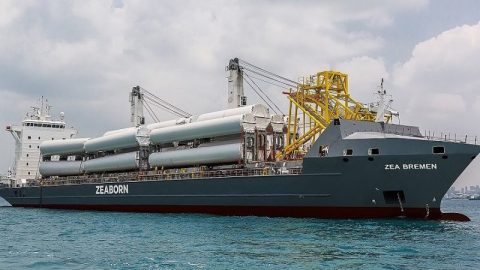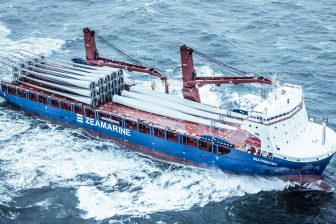
Zeamarine announces IMO 2020 cost recovery measures
Starting September 1, customers of Zeamarine will pay a Low Sulphur Surcharge of USD 35 per freight ton to recover the costs from the IMO 2020 sulphur regulation, which forces shipping companies to reduce their sulphur emissions.
In a customer advisory, Zeamarine states it has evaluated the ways in which the company can comply with the new regulation and has decided to pursue the most environmentally friendly option, which according to Zeamarine is switching from heavy fuel oil (IFO380) to an IMO 2020 compliant low sulphur fuel.
To recuperate the costs of the fleet preparation and the higher fuel costs Zeamarine will introduce a new bunker surcharge for the company’s liner services per September 1st, 2019. For all tramp services commencing on or after September 1st, a new bunker adjustment clause will be put in place.
“We are in the process of preparing the fuel tanks, piping systems and engines of our vessels in order to
comply with the new regulation. As a result, significant costs will already incur during the fourth quarter of
2019, before the official enforcement of the regulation. In addition to the costs related to preparing our fleet, the fuel itself is significantly more expensive,” the company explains.
IMO 2020
The new sulphur regulations come in effect on January 1st, 2020 and force shipping companies to reduce their sulphur emissions. Shipowners can either switch to low sulphur fuel, in which the maximum allowed sulphur content is reduced from 3.5 to 0.5%, install scrubbers that remove the sulphur from the exhaust gasses or switch to LNG as a fuel, which naturally hardly produces any sulphur emissions. By far, most companies will comply by simply switching to low sulphur fuel, but there are also some multipurpose shipping companies, like Spliethoff, which have opted to equip a large portion of their fleet with scrubbers, as this will allow them to continue to burn cheap heavy fuel oil after January 1st.
Concerns
Intercargo recently stated it is concerned about the quality and safety of the new IMO 2020 compliant low sulphur fuels, as there hasn’t been much testing yet. “It is extremely worrying that compliant fuels have so far been made available only in a limited number of ports and under unfavourable terms for voluntary early testing by ships, as charterers and operators are not currently obliged to purchase future compliant fuel. Hence, the practical testing of new fuels and crew training, which is only possible under real conditions aboard ships, is very limited and pushed to the end of year – this situation creates significant safety implications for the operation of ships, which could eventually threaten the safety of seafarers, ships, and cargoes, as well as the marine environment,” the organisation stated.
Intercargo urged the fuel supply industry to provide the market with significant volumes of compliant fuels at many ports around the world so that all sectors can be serviced. Additionally, the dry bulk association stressed that it is of utmost importance that ship charterers and operators start purchasing these fuels so that the crew can be trained and the fuels tested.


